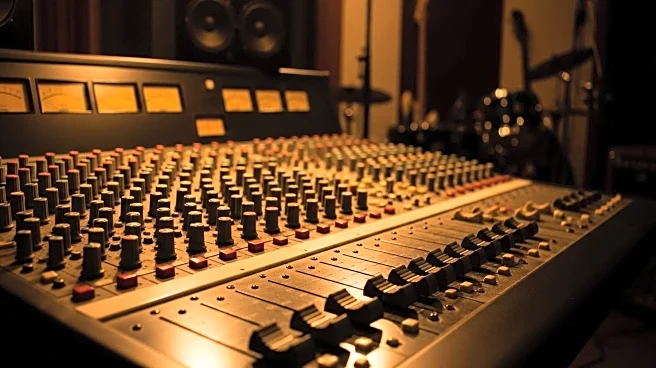What's Happening?
Howard Bilerman, a prominent record producer and co-founder of Montreal's Hotel2Tango studio, has played a significant role in shaping the city's music scene. Bilerman's journey began in the 1980s when he documented punk shows at Montreal's Les Foufounes Électriques. He later established Hotel2Tango, an analog-based recording studio, with Radwan Moumneh and members of Godspeed You! Black Emperor. Bilerman has produced notable records, including Arcade Fire's 'Funeral' and Leonard Cohen's 'You Want It Darker.' He discusses the challenges of recording bands like Godspeed You! Black Emperor, who are accustomed to live performances, and the impact of gentrification on Montreal's music venues.
Why It's Important?
Bilerman's work highlights the importance of preserving the authenticity of live music in studio recordings, a challenge faced by many producers. His efforts have contributed to Montreal's reputation as a hub for innovative music production. However, the city's music scene faces threats from gentrification, as noise complaints have led to the closure of several venues. This trend could undermine Montreal's cultural vibrancy and limit opportunities for emerging artists. Bilerman's insights underscore the need for balancing urban development with cultural preservation.
What's Next?
The ongoing gentrification in Montreal's Mile End neighborhood may continue to impact the music scene, potentially leading to more venue closures. Stakeholders, including musicians and cultural advocates, may need to engage with policymakers to find solutions that protect the city's musical heritage. Bilerman's studio, Hotel2Tango, may continue to serve as a bastion for authentic music production, attracting artists who value the analog recording process.
Beyond the Headlines
Bilerman's approach to recording emphasizes the ethical dimension of music production, advocating for methods that respect the artistic integrity of musicians. His work raises questions about the role of producers in shaping the final sound of a record and the potential loss of cultural identity in the face of urban development.











